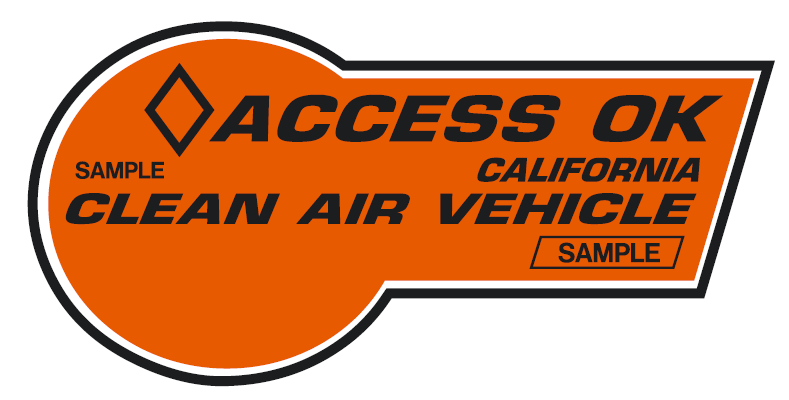Almost as predictable as the salmon flocking to Capistrano, hundreds of new state laws have taken effect with the arrival of the new year. Among the freshly minted statutes are a bunch that deal with transportation. Here are some highlights:
- AB 317, Selling DMV appointments: The law targets the sale of appointment times with the Department of Motor Vehicles. That has become an issue in recent years as the DMV — which for years has been criticized for inefficiency and dysfunction — floundered in responding to the demand for new, federally compliant drivers' licenses (aka REAL IDs). Into that customer-service breach stepped Oakland-based Yogov, a startup that, for about $25, promises to expedite the process of finding DMV appointment times in the not-too-distant future. AB 317's author, Assemblymember Tyler Diep, R-Westminster, argued that DMV services should be free, period, and won unanimous agreement in both houses of the Legislature.
- AB 544, New clean-air vehicle stickers: This law, enacted in 2017, continues the state's program of providing carpool-lane stickers to purchasers of new electric and other clean-air vehicles until 2025. Stickers provide carpool-lane access to solo motorists for as long as four years, and the DMV issues stickers with a new color each Jan. 1. Your 2020 color if you buy one of the qualifying vehicles: orange.
- SB 957, Clean-air vehicle decals for low-income drivers: The 2018 legislation by state Sen. Ricardo Lara, D-Long Beach, aims to give working-class Californians the same access to carpool lanes as that enjoyed by wealthier residents who can buy pricy new electric cars or other clean-air vehicles. SB 957 would do that by allowing lower-income drivers (those in households earning 80% or less of the state's $71,228 median household income) to get carpool lane stickers when they buy used (and presumably less expensive) clean-air vehicles whose original stickers have expired. Lara argued that the special stickers, which will expire Jan. 1, 2024, are especially important because low-income Californians are driving much longer distances to their jobs because of the lack of affordable housing where they work. The bill passed the Senate 32-4 and the Assembly 53-18.
- SB 485, Repealing license penalties for non-driving offenses: The new law ends the practice of suspending or restricting drivers' licenses for some criminal offenses that don't involve driving. For instance: prostitution, vandalism or owing the state $100,000 or more in unpaid taxes. The bill's sponsor, Sen. Jim Beall, D-San Jose, questioned whether those provisions have been successful in deterring crime. He also contended that taking away the privilege to drive for non-driving offenses strips people of an essential means of getting to work or school and is thus overly punitive and counterproductive. The bill passed the Senate 29-10 and the Assembly 52-24.
- AB 1810, Pot party buses: The bill, comprised of a diverse set of measures originating in the Assembly Transportation Committee, includes a provision that makes it illegal to smoke marijuana while riding on a party bus. The concern: that bus drivers exposed to choking clouds of pot smoke might get high themselves. An alternative proposal, which would require vehicles used for cannabis tourism to have some sort of enclosed, smoke-free driver's compartment, is on hold. AB 1810 passed with unanimous votes in both the Assembly and Senate.
- AB 2115, Rules for safely passing garbage trucks and similar waste-service vehicles: The bill by Assemblymember Miguel Santiago, D-Los Angeles, aims to improve safety for refuse-collection workers by requiring drivers to change lanes when passing garbage or recycling trucks. A bill analysis notes federal statistics showing that refuse and recyclable material collectors have the fifth-highest rate of fatalities among U.S. occupations, more than 40 per 100,000 workers. The legislation passed unanimously in both the Assembly and Senate.
